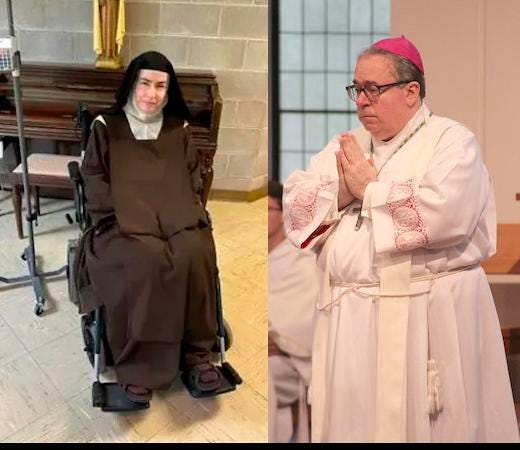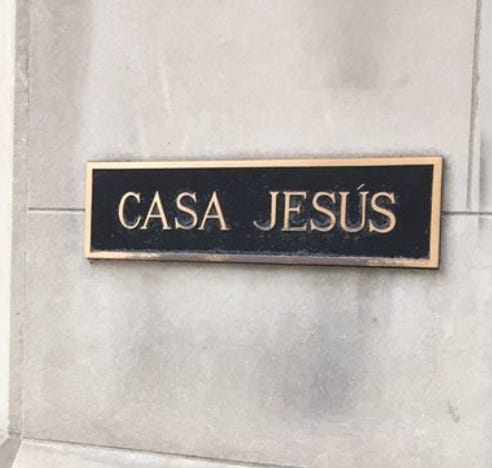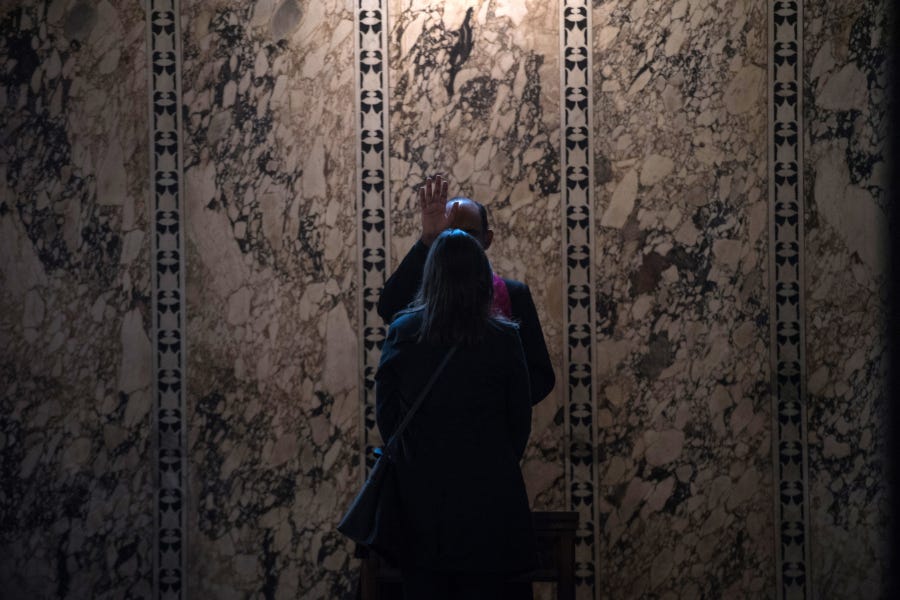One day after he was given charge of a Texas Carmelite monastery, Bishop Michael Olson has issued a decree of dismissal from religious life for the monastery’s superior, whom he said is guilty of sexual misconduct with a priest.
Olson has also announced that he will restore daily Mass to the monastery, after announcing last month that it would be prohibited until the monastery dropped a lawsuit filed against the bishop.
The dismissal is the latest salvo in a contentious public battle between Olson and the monastery. While the nuns have sued Olson and the Forth Worth diocese, the bishop was given control over the monastery May 31, by a Vatican decree appointing him a “pontifical commissary” for the house of Carmelite nuns.
Read more:
Sex, money, and cloistered nuns? The strange case of Bishop Olson and the Fort Worth Carmelites
Fort Worth bishop bans daily Mass until nuns drop lawsuit
Vatican appoints Olson 'commissary' of Carmelite nuns
In the afternoon on June 1, Olson issued a decree explaining that he had found Mother Teresa Agnes (Gerlach) of Jesus Crucified to be guilty of “having violated the sixth commandment of the Decalogue and her vow of chastity with a priest from outside the Diocese of Fort Worth.”
“Therefore, as Pontifical Commissary of the Monastery in Arlington, Texas, and as the Bishop of the Diocese of Fort Worth, Bishop Olson dismissed Mother Teresa Agnes from the Order of Discalced Carmelites,” a diocesan statement explained.
While Gerlach is expected to appeal the decision to the Vatican, the move would seem to begin a chapter in the ongoing dispute between Olson and the Carmelite monastery, with Olson exercising quickly the authority conferred on him Wednesday by the Vatican.
—
The disagreement in Texas began April 24, when Olson initiated an investigation into allegations that Mother Teresa Agnes had engaged in sexual misconduct with a priest.
While the diocese claims the nun admitted to that misconduct, representatives for the nun deny that claim. They say that Gerlach made an admission last year of unchastity, but without specifying details, and only while she was under the influence of opioids after surgical procedures.
And it has not been immediately clear what alleged canonical crime Olson was actually investigating. While the Church teaches that it is a grave sin to engage in sexual acts outside of marriage, not all such acts are canonical crimes, or grounds for dismissal from religious life.
Canon law establishes the possibility of criminal penalties for sexual activity which is coercive, public, or persistent, but does not establish that singular incidences of sexual conduct are always classified as canonical crimes. The bishop has not specified what might classify Gerlach alleged sexual misconduct as canonically criminal.
Canon lawyers advising the nuns have said that lack of specificity makes it especially difficult to understand Olson’s actions, or to understand if the bishop has other, as-yet-unspoken concerns about the monastery.
For his part, Olson declined a June 1 interview request from The Pillar, saying the civil lawsuit filed by the nuns made it impossible to discuss the situation.
Nevertheless, once the investigation began April 24, Bishop Olson moved to seize phone and computer equipment from the Carmel, restricted the cloistered nuns’ access to the sacraments, and threatened them with dismissal from their order if they obstructed his investigation.
Among other restrictions, the bishop had prohibited daily Mass at the monastery, and restricted access to confession — though he announced June 1 that in addition to restoring daily Mass beginning June 7, he is also “in the process of arranging regular confessions for the nuns.”
Olson was given charge of the monastery May 31, and has quickly begun to make changes.
But while Olson has issued a decree of dismissal, sources say that Gerlach will appeal that decree to the Holy See — and because appeals have “suspensive effect” in canon law, she reportedly does not intend to move from the monastery until she has had a ruling from Vatican officials on her appeal.
And it is not yet clear whether a lawsuit filed by the nuns against Olson and the diocese last month has yet been formally dropped. A hearing in the suit had been scheduled for June 23, but since Olson is now the monastery’s canonical superior, it is not clear whether the officers of its civil corporation will continue their suit.
At the Vatican, an appeal from Gerlach is expected to be heard eventually at the Supreme Tribunal of the Apostolic Signatura, since she and the nuns of the Arlington Carmel have challenged the legitimacy of several decisions from the Dicastery for Institutes of Consecrated Life and Societies of Apostolic Life.




